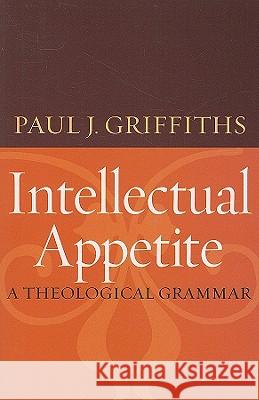Intellectual Appetite a Theological Grammar » książka
Intellectual Appetite a Theological Grammar
ISBN-13: 9780813216867 / Angielski / Miękka / 2009 / 248 str.
The appetite for knowledge--wanting to know things--is very strong in humans. Some will sacrifice all other goods (sex, power, food, life itself) for it. But this is not a simple appetite, and this book treats some of its complications, deformations, beauties, and intensities. Christian thinkers have traditionally distinguished between good and bad forms of the appetite for knowledge, calling the good ""studiousness"" and the bad ""curiosity."" The former is aimed at joyful contemplation of what can be known as gift given; the latter seeks ownership and control of what can be known as property for the taking. Paul J. Griffiths's Intellectual Appetite offers an extended study of the difference between the two, with special attention to the question of ownership: What is it like to think of yourself as the owner of what you know, and how might it be different to think of what you know as a gift given you? How these questions are answered has a deep impact on a number of issues in contemporary educational and legal theory. Most fundamentally, there is the question of what it means to know something at all. On that, this book offers an account of knowledge in terms of intimacy: to know something (a mathematical formula, a past event, another human being, the lineaments of a galaxy) is to become intimate with it according to its kind. There are also important and currently pressing ancillary questions; for example, that of what plagiarism is and how it should be addressed. Plagiarism is often understood in part as theft of intellectual property, and since it is essential to the argument of this book that seeking knowledge ought not to be understood as seeking ownership, the book offers a theological defense of plagiarism.











